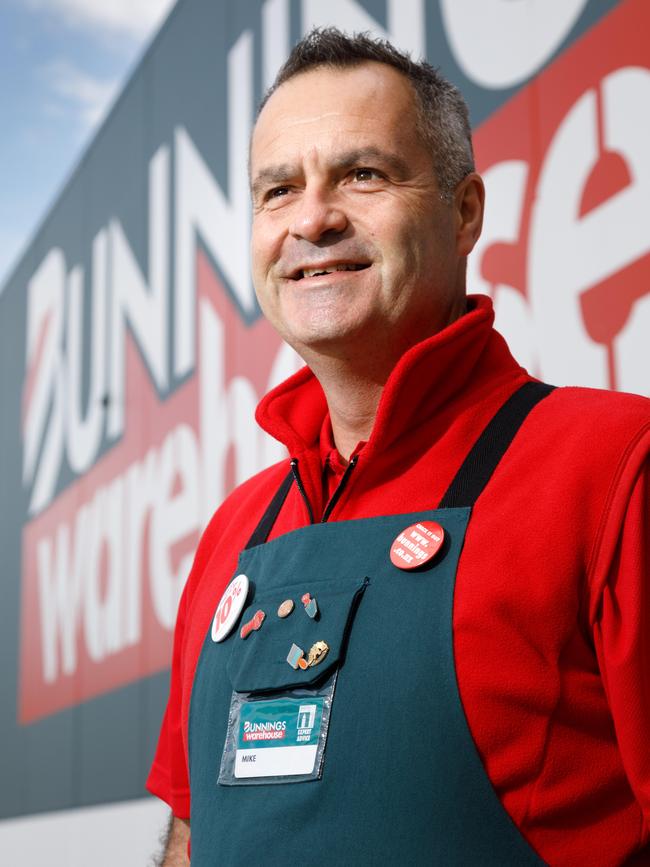
I fear the casualty rate among Australian CEOs will be high because Wall Street’s bear market and its consequences for business are sweeping the world and Australia at a pace I have never before experienced.
An early test of every CEO’s ability will be whether they allow the full Fair Work minimum wage rise of 5.2 per cent to infect their wage and salary structure without offsetting cost reductions, usually linked to investment.
Those that have unlimited pricing power can be excused from the test.
The US 30-year mortgage rate has risen from 5.5 to 6.3 per cent in just a week and has doubled in six months; the global borrowing benchmark, the US 10-year bond rate has quickly soared to an 11-year high and the Australian dollar has slumped below US69c.
The US and Australian downturns will be nasty and, unlike the Covid downturn, there will be no government rescue.
Many Australian top executives are unprepared for the task.
In my experience, downturns require two base strategies – tough decisions, which are very different from the current soft executive agendas, and a deep understanding of what is happening to your customers.
CEOs must determine which areas of their market will continue to prosper and whether strategies and investment can overcome rising labour costs.
And government enterprises, led by Bill Shorten’s NDIS, will also need vast improvements in the way they operate if the nation is to get through.
In my series on this new world, which started on line Friday, I have deliberately stayed away from discussing whether there will be a recession and the level of the government debt because the world is swamped with discussion on these issues.
Accordingly today’s commentary concentrates on what is set to happen to real enterprises.
I was fascinated by Bunnings’ recent decision to focus marketing on those aged 25 years and younger.

It’s true that the younger generation will require a different marketing approach and will be looking for different housing products to their parents.
While houses may fall in value, skyrocketing interest rates will substantially reduce available banking finance so more young people may reside at their parents’ home.
Concentrating marketing on “under 25s” may work for some businesses, but I doubt whether it will yield good short-term returns for Bunnings.
Industry superannuation funds are also confused by the youth market and have convinced the ALP to block younger generation first-home buyers from accessing superannuation.
Young people will contract out their labour as much as possible so as to avoid putting money in the hands of the superannuation funds who conspired to block them from getting a home.
The domestic consumer market that looks the most exciting are those people with a strong asset base and an income that will not be greatly impacted by the downturn.
Morgan Research uses a complex set of variables to isolate these people and calls them the “new economic order” or NEO consumers.
Their strong incomes and asset bases enable them to maintain their lifestyle spending in downturns.
Morgan say NEO consumers represent 24 per cent of the population and an incredible 52 per cent of Australian consumption.
Those businesses that successfully target NEO consumers will ride through the looming downturn unscathed.
Accordingly the small business operator that I described earlier this week currently services both low and high income consumers.
He needs to concentrate his marketing on the high-income sector.
Bunnings will need to make sure that their thrust into the younger market at this time does not annoy the older cashed-up generation for whom Bunnings is a way of life.
Currently many of the big supermarkets are expanding their range of low-cost home brands aiming at those facing hard times.
Again, like Bunnings they need to make sure they don’t annoy the NEO customers who want to continue to buy their favourite products and don’t care about the price.
Rural Australia is booming and is likely to continue to do so under the impetus of high agricultural product prices and the lower dwelling prices that attract city residents.
Better productivity is about investing to work smarter.
Most enterprises face higher wage costs and either have to take the extra costs on the bottom line; increase prices or devise some way to reduce labour costs.

Most enterprises face higher wage costs and either have to take the extra costs on the bottom line; increase prices or devise some way to reduce labour costs.
At the moment there is a shortage of skills, but in many industries that will change as the downturn gathers pace.
Too many Australian CEOs have delegated industrial relations to old-fashioned human resource departments who have little idea of how to use modern labour management and productivity techniques, so will not be able to contain the impact of the Fair Work decision. The CEOs will need to be replaced.
Usually lowering labour costs requires greater investment.
On the Gold Coast in Queensland is a cafe/coffee shop near Nobby Beach where patrons now order their food and coffee from an online menu tablet.
The front of house staff was halved. It worked.
No where is “productivity” more hopeless than government enterprises.
Politicians promise services, but simply don’t have the staff with ability to efficiently manage delivery of those services.
The best single illustration is NDIS expenditure on disabilities, which is set to unsustainably exceed defence in coming years.
No one wants to cut back on disability payments but the whole exercise is looking like “pink batts on steroids”.
Bill Shorten has been given the task to run it efficiently and that task ranks next to foreign affairs and defence in national importance.
I think Shorten is probably the best equipped politician in the parliament to attempt the task, but it will not be easy and needs to be duplicated in other areas of the state and federal public service.








Wall Street is sending a message to shareholders in Australian non-mining companies: Make sure you have chief executives and boards who can handle a lower Australian dollar and a downturn.